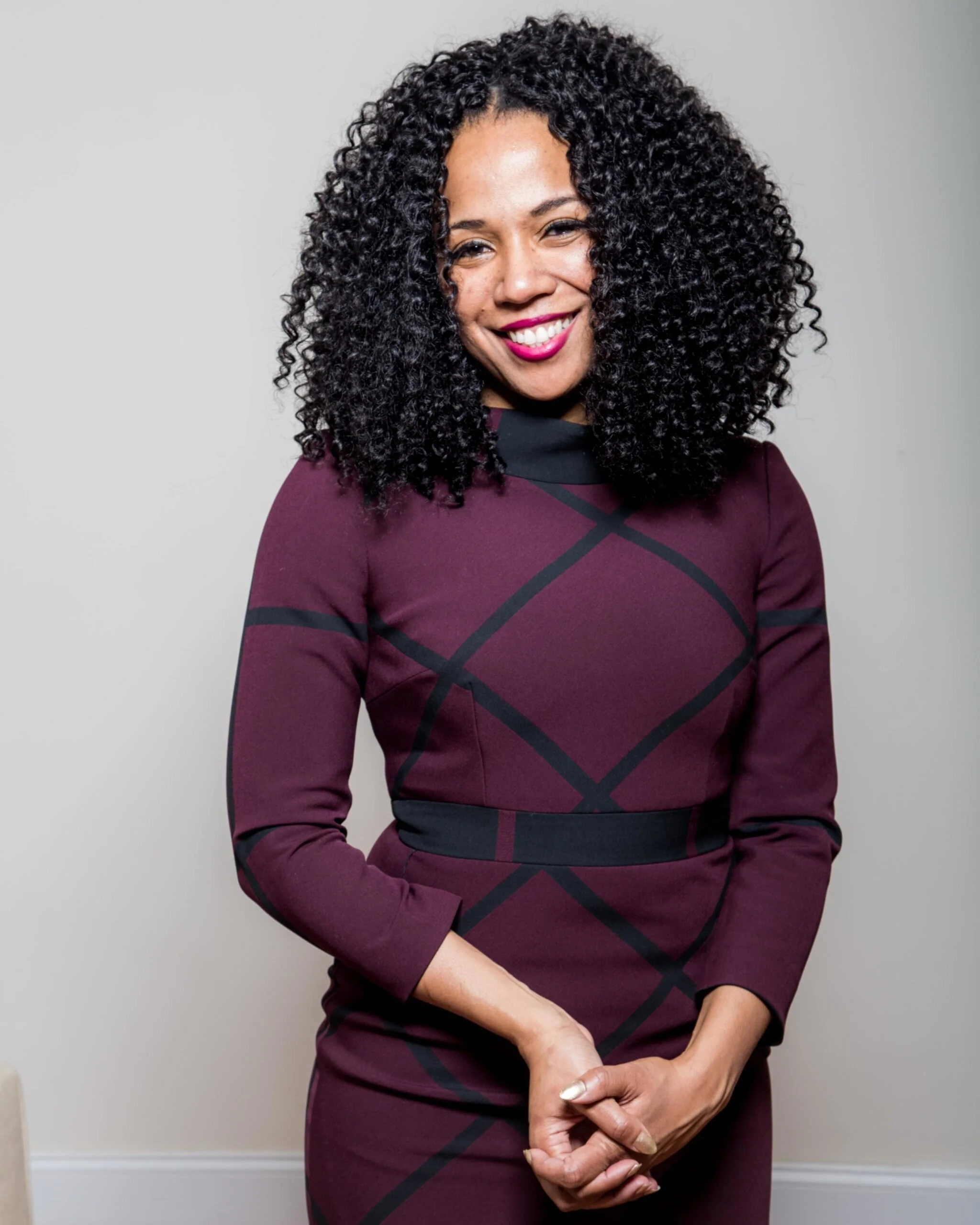
Field notes
Conversations with gender lens investing practitioners about their investment journeys, challenges, and reflections.
Shifting power through a participatory approach: An interview with Equality Fund’s Adaora Ogbue
Equality Fund launched in 2019, with a $300M anchor from Global Affairs Canada. They recently launched their investment theory of change, which centres historically excluded grassroots feminist movements. We spoke to Director, Investment Strategy Adaora Ogbue about how their model seeks to disrupt systems of finance, and why it’s critical to align their investments - not just grantmaking - with deep gender impact.
Going beyond Governance: An interview with Pooja Eppanapally
Women of the World Endowment (WoWE) was created with a bold vision—build a $5B endowment, over the next 10 years, to centralise the role of women as economic, environmental, and social changemakers who are creating a high growth future. Investment Manager Pooja Eppanapally spoke to us about mainstreaming gender finance, evolving definitions, and their approach to impact and measurement.
From Silos to Systems: An interview with Jenn Pryce
Calvert Impact Capital has taken a holistic approach to gender since they began investing debt capital 25 years ago. They’re currently influencing over a billion dollars, and invest in intermediaries, institutions, and impact funds in the United States and more than 100 countries around the globe. We spoke to CEO Jennifer Pryce about the shifts she’s seen in the field, and what she believes gender finance needs to become the new normal.
Why gender lens investing in Africa needs a localised, participatory approach: an interview with Andia Chakava
Andia Chakava is the Investment Director at the Graca Machel Trust, a Pan African organisation that deals with women's and children's rights through a gender lens investment vehicle and other programmes. We spoke to her about regional gender and JEDI nuances on the continent, the importance of working with local women’s networks, and the Trust’s participatory investment processes.
Diversity Beyond Gender: An interview with Patricia Hamzahee
Patricia Hamzahee is an investor and co-founder of UK-based Extend Ventures. Her team’s November 2020 research, Diversity Beyond Gender, into access to funding for diverse founders in the UK was the first of its kind, and they have recently been commissioned for similar research in the European context. Patricia speaks to us about the particular challenges facing UK investors when it comes to investing with an equity lens, and what they’re doing to build a better evidence base.
A Care Economy Primer for Investors
The pandemic has brought the care economy into focus as a lever for systemic change and gender equality. As we launch the GenderSmart care economy initiative, Sana Kapadia explains why it’s time to address the full spectrum of care work, globally, in both formal and informal economies.
JEDI Investor Spotlight: Te Puna Hapori Infrastructure Fund
Brightlight Impact’s Head of Investment Management Simba Marekera talks about the development and implementation of a radically inclusive community infrastructure strategy in New Zealand.
Deepening Inclusion Through an Intersectional Lens
Tara Murphy Forde shares how Global Partnerships’ mission and impact-first strategy have guided the organisation’s commitment to inclusion; and how their approach has evolved over time to consider not only poverty, but also gender, geography, race, and ethnicity as intersectional drivers of exclusion.
Gender-Smart Investing Journeys: Seema Hingorani, Morgan Stanley
Seema Hingorani has been CIO of the New York City Retirement Systems, founded nonprofit Girls Who Invest and investment firm SevenStep Capital to address the diversity gap in investment management, and nearly two years ago joined Morgan Stanley Investment Management as a Managing Director on the senior leadership team. She speaks to GenderSmart about the evolution of her gender-focused investing approach and finding investment talent in surprising places.
Diversity In Action: In Conversation with ILPA’s Jennifer Choi
We sat down with Jennifer Choi, Managing Director of Industry Affairs for the Institutional Limited Partners Association (ILPA), to discuss their Diversity in Action initiative, the challenges of capturing diversity metrics in a global context, and the actions LPs and GPs can implement to advance diversity, equity and inclusion.
Gender Lens Investing In and By Private Market Funds, During the Global COVID-19 Pandemic: a View from Capital Connect
The COVID-19 Pandemic made a significant impact on gender lens investing over the last year. GenderSmart’s Suzanne Biegel and VC Include’s Bahiyah Yasmeen Robinson share learnings from the Capital Connect ‘un-showcases’ to date, and the massive market opportunity in gender-smart private market (VC, PE, private debt) investment funds.
Shifting the Burden of Economic and Moral Case-Making
It’s time to reverse the burden of case-making by asking mainstream investors to justify their weddedness to legacy approaches and allocations.
Gender-Smart Investing Journeys: Ingrid Leong
We had a conversation with Ingrid Leong, CIO for the Houssian Foundation, asking her to look back on her experience aligning the Foundation’s investment strategy with gender lens investing and creating a fully mission-aligned investment portfolio. She offered her honest reflections and advice for those starting out on this journey.
Gender-Smart Investing Journeys: Rachel J. Robasciotti
We talk about scarcity mentality versus the regenerative economy with Rachel J. Robasciotti, Founder & CEO of Adasina Social Capital, and why investing in alignment with social justice movements just makes financial sense.
Profit and Prejudice: Why Replacing Falsehoods With Facts Profits Us All
Prejudice benefits no one. But just how harmful is it to societies worldwide? And what are the economic arguments for overcoming it? Paul Donovan, Chief Economist at UBS – and author of "Profit and Prejudice: The Luddites of the Fourth Industrial Revolution" – explains the facts and fictions of discrimination.
Galvanising intersectional investing: An update from GenderSmart
Over the past six months, GenderSmart has taken to heart our commitment to racial equity and diversity, examining both our own practices and our potential to influence others. Here’s a short progress report, and some thoughts about what comes next.
Building the Ecosystem for Gender-Smart Diverse Fund Managers
Now is the time to write cheques to diverse asset managers. As we prepare for Capital Connect, a series of curated meetings between like-minded LPs and GPs, we speak to Bahiyah Yasmeen Robinson, Founding Director of VC Include and Capital Connect partner, for her insights into inclusive investing from both sides of the marketplace.
Why Investing in Women of Colour Through CDFIs is Key to an Inclusive Recovery
Women of colour are the fastest growing entrepreneurial demographic in the U.S., and key to an inclusive recovery, but they face considerable barriers to capital - including perceptions of risk from lenders. New findings from a multi-year research programme suggest they are not riskier borrowers, writes CNote’s Danielle M. Burns; it’s time to invest in them through CDFIs and counteract biased lending practices.
Investing in Indigenous Women
We speak to Agnetha “Jaime” Gloshay and Vanessa Roanhorse, Co-Founders of Native Women Lead, an organisation dedicated to supporting and growing Native American women entrepreneurs and leaders, about Indigenous economies, the challenges facing Native women, and the importance of letting Native women lead.
Gender-Smart Investing Journeys: Teresa Younger, Ms Foundation
Teresa C. Younger is the CEO and President of the Ms Foundation for Women, which is on a mission to build collective power by centering women and girls of colour. She explains how the Ms. values run through everything the Foundation does - from their investment policy statement to the make-up of the organisation, where three quarters of the leadership team and 70% of the staff are women of colour - and why institutions need to get intentional about being uncomfortable.




















